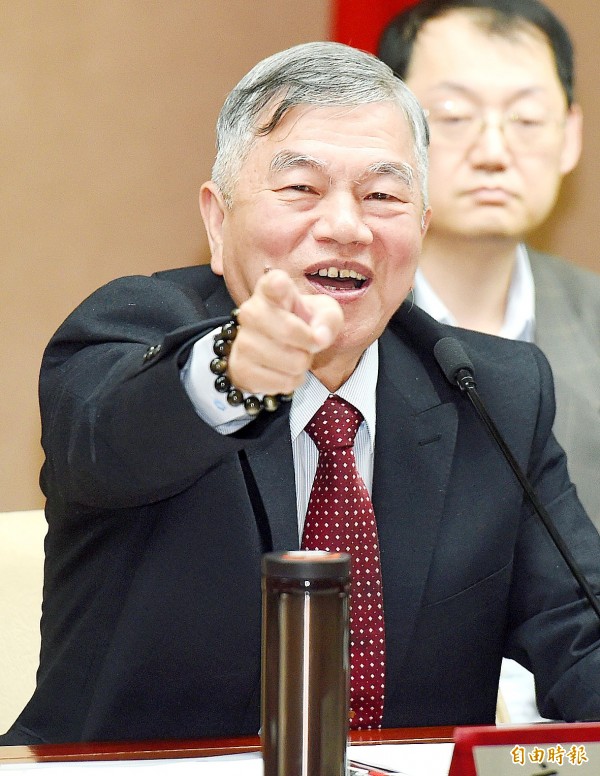《TAIPEI TIMES》 Nuclear power to be abolished in 2025

Minister of Economic Affairs Shen Jong-chin unveils the nation’s new energy strategy during a news conference yesterday afternoon. Photo: Huang Yao-cheng, Taipei Times
REFERENDUM No. 7: The government is to bar capacity expansions at coal-fired power plants and abide by local governments’ tightened environmental regulations
By Ted Chen / Staff reporter
The Ministry of Economic Affairs yesterday published a revised national energy strategy that calls for the abolition of nuclear power by 2025 and reductions in the use of fossil fuels.
Although Taiwanese in November last year voted against the government’s 2025 deadline to abolish nuclear power, the energy source would still be completely removed from the nation’s energy mix after that year due to inevitable constraints, Minister of Economic Affairs Shen Jong-chin (沈榮津) told a news conference in Taipei.
Resistance from local governments, difficulty in procuring replacement parts for aging reactors, finding storage space for spent fuel rods and the inability to complete the stay-of-decommissioning application process have all but ruled out the use of nuclear power beyond 2025, Shen said.
Other remedies, such as reactivating decommissioned nuclear plants, are also unlikely due to the lengthy budget approval process at the legislature, Shen said, adding that General Electric Co is no longer able to provide technical support for reactors that were installed decades ago.
As for referendum No. 7, which called for the reduction of thermal power by at least 1 percent per year on average, Shen said that the goal is achievable this year and next year.
Achieving the goal would not increase the risk of energy shortages and 15 percent reserved power generation capacity could be maintained, he said.
However, energy shortages could happen in 2021 due to an anticipated rise in consumption, Shen said.
Major expansions by Taiwan Semiconductor Manufacturing Co (台積電), Powerchip Technology Corp (力晶科技) and Winbond Electronics Corp (華邦電), as well as the continued adoption of electric vehicles and the return of Taiwanese manufacturing companies, would raise consumption by an additional 2 billion kilowatt-hours, he said.
“In light of rising demand, it is becoming increasingly difficult to cut the use of fossil fuels at a pace of 1 percent a year based on 2017 levels,” Shen said.
He urged the public to support the government’s drive toward renewable energy sources.
However, the government would fulfill the referendum’s requirement barring capacity expansions at coal-fired power plants and abide by local governments’ tightened environmental regulations and limits on coal use, Deputy Minister of Economic Affairs Tseng Wen-sheng (曾文生) said.
Fossil-fuel power generation uses coal and natural gas, Tseng said, adding that the government would continue to lower dependence on dirtier coal plants in favor of cleaner-burning gas plants.
Coal-fired power would trend down, but it would take more time to determine its proportion in the nation’s energy mix, Tseng added.
新聞來源:TAIPEI TIMES
%http://www.taipeitimes.com/

















